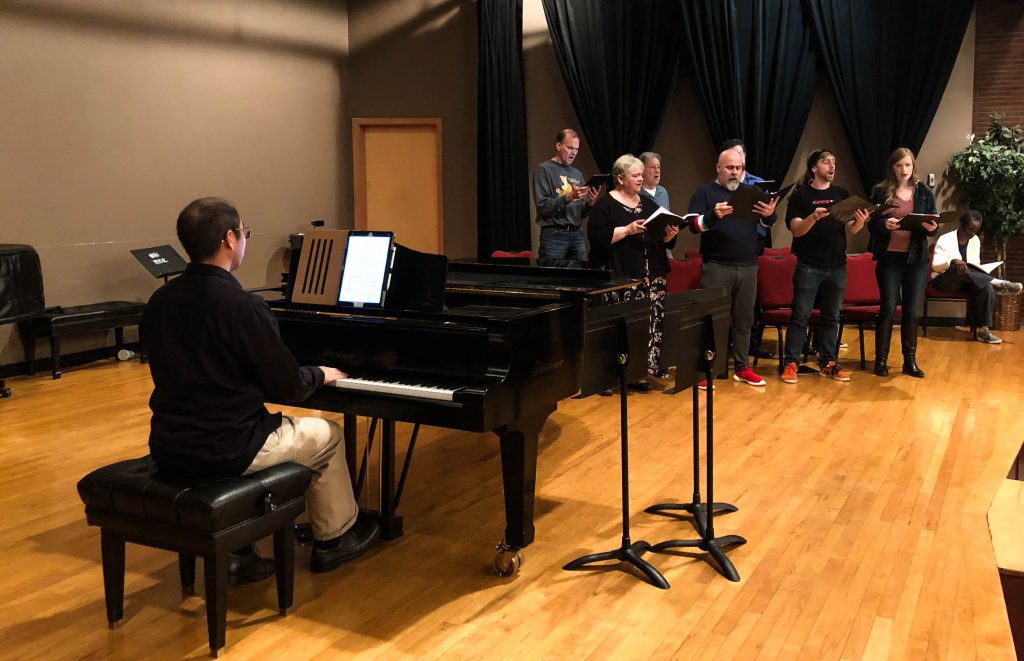
Never Retallack | Entertainment Editor
I should start by saying, I have never been to an opera before. Whenever this artform was mentioned before, I pictured a huge theater, an audience full of wealthy people with little binoculars and people on stage yelling so loudly that they could shatter a glass. On Oct. 6, my mind was changed: The Cascadia Chamber Opera surprised me entirely with their stunning performance.
The Cascadia Chamber Opera was founded in 2009, compiled by a group of local and regional musicians presenting opera in a concert format rather than a full performance. A concert format is a more laid back version; the singers are dressed nice, but not in costumes, and they only have a pianist accompanying them, rather than a chorus and full band. They performed songs from different pieces, creating a more diverse performance.
This format allows the group to travel, which is far different from most opera houses that typically stay stagnant due to their large stage props.
The Cascadia Chamber Opera is a unique group that aims to disrupt misconceptions about opera — such as the idea that it is an elitist artform. They keep all of their tickets low in cost, and often free for students to reinforce their motto of accessibility.
“Our mission is to bring opera to more people, accessibility is key,” said Bernie Robe, a board member for the group.
This was apparent from the start, with their low prices: $8 for general public, $5 for seniors and students, and completely free for Western students. They are an all English opera group, which they decided to do to make their performances feel less intimidating for people who don’t have experience with opera.
Their performance was from the works of Gilbert and Sullivan, victorian composers who based much of their music on mocking British society, according to the artistic director Bereniece Jones-Centeno. Jones-Centeno guided the performance at Western, introducing the plot before each song that way anyone could enjoy, regardless of their previous knowledge of that piece.
With the guidance from the artistic director, I was able to sit back and enjoy the lively performance by the singers. While there were no costumes, nor set pieces, the artists delivered with their spectacular voices and expressive faces.
Each new character that was introduced was properly conveyed from the way the singer would interact with the audience, winking or scowling while belting notes with perceived ease.
While there were around 20 songs sung, stopping at around nine for intermission, the show felt fast paced and engaging— never a dull moment with the playful lyrics and energetic performances from the singers.
Before their performance I interviewed Jones-Centeno who discussed the importance of opera.
“The main idea with opera is that it is all encompassing, using the expression of the human voice, opening it up and telling a story through singing it… telling the human story,” Jones-Centeno said.
Contact the author at howlentertainment@wou.edu
Photos by Never Retallack

